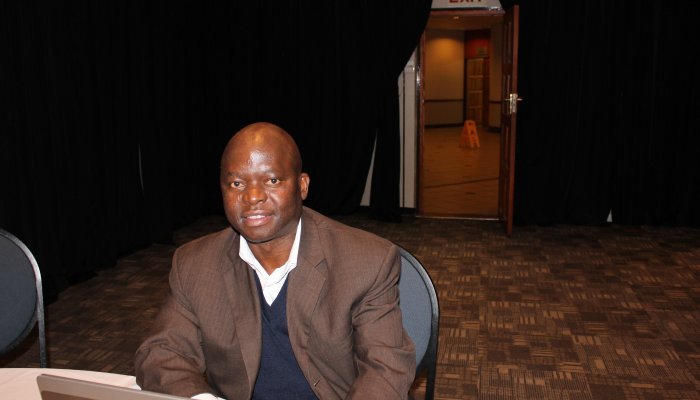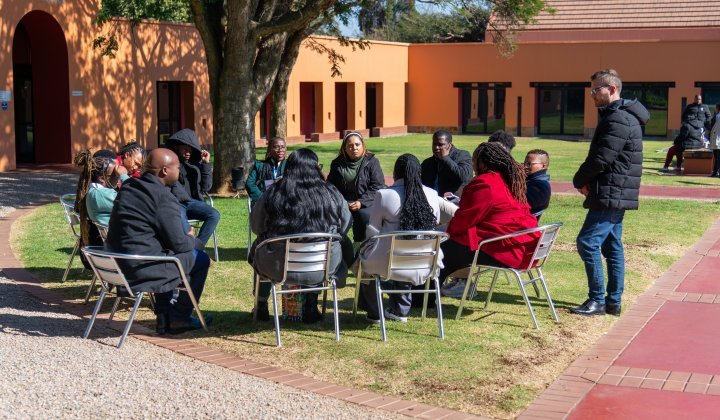Case study: Tech-funding frustration
By Professor Godswill Makombe
I have been looking to create a data-driven management solution for Africa since 2004. In 2015, I started working with a team of academics to develop a data-based management system for small-scale farmers, which is based on the PhD research of Dr. Obvious Mapiye. The team, which comprises Dr. Mapiye, Professor Kennedy Dzama, Dr. Annelin Molotsi and me – all academics in the field of agricultural science – together with Joubert de Wet and Nolene Singh from the University of Stellenbosch’s Innovas Institute – have been working to monetise this research.
With a lot of development, we created a commercially viable idea, and Innovas introduced us to the Technology Innovation Agency (TIA), which is a national institute for the funding of technology projects assessed to be viable. The TIA granted us about R650 000 to build an application that could be used by livestock farmers in South Africa. We needed a prototype in order to apply for international funding, because funders need to see a minimum viable product (MVP).
The next step was to get a phone application built. This is when we discovered how expensive tech development was. We found a developer but soon discovered that the TIA funding only covered the development of the front end of the application, which our customers would use, not the database, which is the innovation. It requires at least another R1 250 000 in funding. Unfortunately, it appears we may not get further funding from TIA to develop an MVP, and as such, our project stalled.
As the project is designed to help small-scale farmers commercialise and sits between the commercial sector and the smallholder sector, and would provide a boost for the South African agricultural economy, we believed that the Industrial Development Corporation (IDC) or the Department of Trade and Industry (dti) could assist. However, our project was too small for IDC funding, which funds projects in the hundreds of millions of rands. We were then pointed to the Department of Agriculture, which could apply on our behalf to the IDC as part of a “collective loan”, and we could then access IDC funding through the Department. However navigating the Department of Agriculture for this funding purpose has been extremely challenging. We then turned to the dti. The dti, however, requires us to have a registered company, and co-funding. We said we had been co-funded by the TIA, but the dti said they do not accept co-funding from another government-funded department.
Despite these setbacks, Dr. Mapiye has continued to research what is missing from our platform, how it compares to our competitors and what other potential there is for its use. We have used this information in our presentations to funders, but without an MVP, we have not been able to secure additional funding to continue with the project.
This experience has shown me that there is more to getting funding than simply having an outstanding tech idea.
The dragon's den: What the venture capitalists say
In light of the difficulties Professor Godswill Makombe and his team have encountered in funding their start-up, Acumen chatted to Anton van Vlaanderen, a partner at a tech venture capital (VC) firm 4DI Capital to talk about how tech start-ups can better prepare in their quest for funding.
When is a good idea a good idea?
Start-ups need to consider the financial value proposition their idea holds for the funder. Some businesses may be able to create jobs or boost the economy of a small town or help develop a sector like small-scale farmers, which will appeal to government-backed funders or impact funders. Ideas that can make a lot of money when they are commercialised will appeal to commercial VCs, for example.
Van Vlaanderen says, “How big is the opportunity your solution offers commercially? If that opportunity is big enough then it becomes a VC-investable business.” He continues to say that the ideas should be scalable and have to be a solution that people are willing to pay for.
Is your good idea backed up by a strong, business-minded team?
Van Vlaanderen says, “We see a lot of good ideas. But do we think that the team presenting can execute on that idea?” He explains there are three parts to the execution of an idea. Technical skills to implement the technical idea, business skills to commercialise the idea, and finally fundraising skills to raise funds to allow the business to scale and grow.
“What I often see with ideas coming out of universities is that the teams have very good technical skills, but they can be very weak with their business and fundraising skills.” When it comes to appealing to funders, Van Vlaanderen says nothing beats past entrepreneurial experience.
What type of funding and support does your start-up need?
Van Vlaanderen urges tech start-ups to investigate the different funding options and look for a funder that matches their ideology. Funding is not only about the financial support. Different funders have different requirements and, importantly, offer different benefits to start-ups.
Government-backed funders often require companies to fulfil social mandates such as job creation. It may be easier to access, like TIA funding, but it may not offer the support that start-ups need. VC firms, on the other hand, require healthy returns on investment, but they often offer far more support in terms of business development. Van Vlaanderen says, “ We partner with companies. It is tough; start-ups need people who will go into the trenches with them.”
Van Vlaanderen warns, however, that when VCs fund start-ups it is a long-term commitment which requires a massive amount of time and dedication to ensure its success. He explains that it is only at the later stages of funding that the deal becomes more transactional.
Funding alignment is key
Van Vlaanderen stresses that start-up should, ideally, ensure their funders’ models align with their own, and that if they are co-funded the different funders are also in alignment. He says, “Different funders work differently. [Their ideologies] don’t always mix.” He explains that if a government-backed funder prioritises job creation, but a VC firm wants to streamline the organisation by cutting jobs, the start-up is going to have a problem.
Don’t be shy, make contact and network
Once an entrepreneur has identified a funder who suits their needs, Van Vlaanderen suggests that they make contact. “Some of the best companies we've invested in started talking to us when they didn’t even need funding. They kept us updated on their progress.”
He says it’s important for start-ups to build relationships. “It’s proper business development,” he notes.
He also urges start-ups to network. All the businesses that 4DI Capital has funded have been introduced to them by a trusted associate; the VC has never funded a “cold call”. He says doing business is about forging relationships with the right people.
Checklist for a funding application
Finally, Van Vlaanderen urges start-ups to be prepared before asking for funding. He gives the following checklist that he would recommend start-ups have at hand. These must be ordered and clearly laid out, so investors know that the start-up is organised.
- A business file: with all your agreements with the university and previous funders, including friends and family.
- A personal file containing a detailed CV, qualifications and certificates.
- A detailed business plan setting out how you envisage the business will work.
- Contracts, restrictions and plans around the business’s intellectual property and patents.
My learnings from the VC’s insights
Professor Godswill Makombe
My team and I are feeling extremely despondent about our funding catch-22. When I review the VC’s comments, however, I believe that our project has fulfilled a number of the criteria listed by Anton Van Vlaanderen, but there is work to be done.
When it comes to the idea, I believe our technical team is extremely strong in terms of what the business hopes to achieve as an agricultural data-based management system, and we are the right people to manage the database and our customers.
While Innovas is helping us with the business and fundraising side of the project, I realise that the funding ecosystem for tech start-ups is vast and complex and that we need to do a lot more work around understanding this sector and how we can access it. Currently, our greatest drawback is our network, which is limited to academic circles. I realise that funders operate in the business world, and we need to start broadening our network to include business professionals.
When it comes to being prepared for funders, we have an exceptional business plan in place, have all our business and personal files up to date and have created a good presentation. We do, however, need to prepare the intellectual property side of our offering as this is a very important aspect of developing a tech business.
Finally, I believe we also need to look at engaging a business partner, who is 100% invested in our offering, to guide us in this entrepreneurial endeavour. We are no longer operating in the known world of academia but rather in the unfamiliar world of business.
KEY TAKEAWAYS
- Plan your funding needs long before you ask for funding and start talking to funders.
- Have at least one experienced entrepreneur in the team, someone who understands business.
- A good idea is one that people will pay for and is scalable.
- Choose a funding company that is aligned with your ideologies and needs.
- Network: the best way to get access to funders is through a personal introduction.
Godswill Makombe is a professor of agricultural economics with training in education and business. He has worked with academics and international and national institutions in sub-Saharan Africa. He has experience of working in multidisciplinary teams and appreciates the strength and complementarity of teamwork. Currently he is an independent researcher, a research associate at Gordon Institute of Business Science, University of Pretoria, and a research associate at Stellenbosch University's Sustainable Agriculture Programme.






